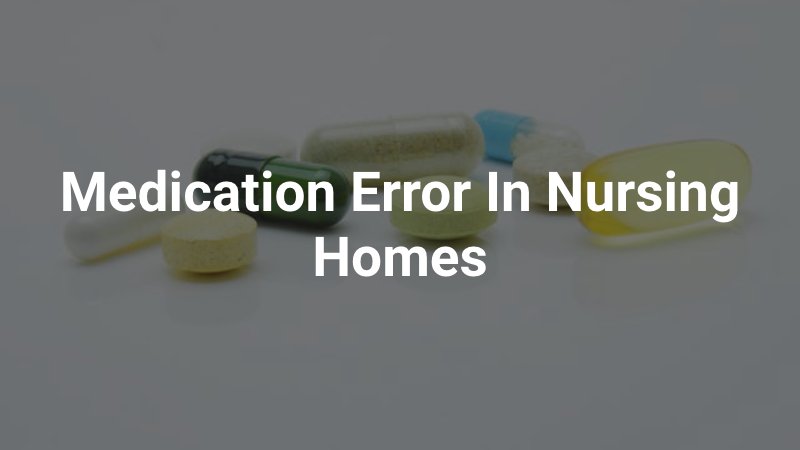
By the time the elderly have care needs that exceed their family’s abilities, they’re often on a long list of daily medications for chronic medical conditions. When an elderly citizen enters a nursing home, the facility’s administrators and caregivers have a legal duty to provide basic medical care as well as nutrition, hygiene, and simulating activities—all with compassion and respect for the elderly resident’s human dignity. Providing and diligently executing a system for administering each resident’s life-sustaining medications is a key component of care in a nursing home. When administrators or caregivers fail in this duty of care, the results can be deadly to nursing home residents or cause a significant decline in their quality of life.
What Types of Medication Errors Occur in Nursing Homes?
Nursing homes in the U.S. are chronically understaffed, with staffing shortages impacting an astonishing 94% of facilities. Staffing shortages are often attributed to the unfavorable work environment and high staff turnover rates. Shortages and fast employee turnover rates result in inadequately trained and overwhelmed staff members which in turn may contribute to medication mistakes such as the following:
- Failing to administer a medication or missing doses
- Administering the wrong dosage
- Administering medication to the wrong resident
- Overusing sedative medications
- Using an incorrect administration method, such as having a resident swallow a medication that’s meant to dissolve on the tongue
- Incorrectly timing a medication and causing a drug interaction
- Borrowing one resident’s medication to administer to another patient
- Failing to report errors
- Failing to inform family members of a new medication prescribed to a resident
- Failing to keep accurate records
- Having an inaccurate or incomplete medical history for a resident resulting in the administration of a contraindicated medication
Medication errors can cause serious injury to nursing home residents, including negative drug interactions, allergic reactions, or increased fall risks due to side effects. Most medication mistakes in nursing homes are unintentional and caused by negligence, but in some cases, the intentional misuse of medications also occurs in nursing homes.
When is Medication Misuse Intentional in Nursing Homes?
Making a medication mistake in a nursing home is a form of neglect, but it may also be intentional abuse under some circumstances. For instance, if a nursing home caregiver intentionally overuses a medication with a sedating effect to make a resident easier to care for it is a form of abuse known as using chemical restraints.
In other cases, a caregiver or other staff member may intentionally skip a resident’s dose of pain medication or switch a prescribed pain medication with an over-the-counter medicine so they can pocket the drug. Intentional pain medication theft occurs so a caregiver can take the medication themselves due to an addiction, or give it to a family member. In some cases, caregivers sell medications stolen from nursing home residents who are left to suffer unnecessary pain.
What Are the Long-Term Effects of Medication Errors in Nursing Homes?
When an elderly nursing home resident doesn’t receive the correct medication in the correct dosage, at the right time, as prescribed by their doctor, it can cause a decline in their quality of life, result in falls and other injuries, or cause wrongful death. Failing to properly administer medication in a nursing home leaves the facility liable for damages like medical expenses, pain and suffering compensation, and sometimes funeral and burial costs.
How Can a Kentucky Nursing Home Abuse Lawyer Help My Case?
The elderly family members we love and cherish deserve the care and compassion they’ve earned over a lifetime. When they suffer mistreatment through medication mistakes and other nursing home negligence and abuse, it’s devasting to them and their loved ones. A Louisville nursing home abuse lawyer in Kentucky can become a voice for justice and financial accountability for your family. Call Gray & White Law today for a free evaluation of your case.